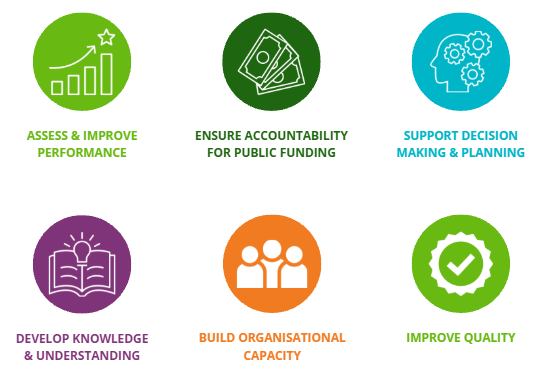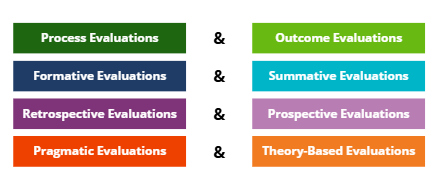CES regularly carries out evaluations forour partners, examining the effectiveness of policies, projects or services to inform future developments or improvements. In this ‘Guide To Evaluation’ we will look at the reasons why you should evaluate and when, different types of evaluations and common challenges to be aware of.
Our definition of and evaluation is:
‘A planned investigation of an intervention, according to specific questions of interest. It is carried out in a systematic and robust way, using reliable social scientific methods, to determine an intervention’s value, merit or worth.’
An evaluation is an investigation. It examines or studies an aspect or aspects of an intervention in detail. In our work, an intervention usually refers to a service, project, programme or policy. Essentially, an intervention can be anything people do to try change a problem or situation.
The aspects of the intervention to be examined or studied depends on the specific questions of interest. Evaluation questions should be specific and clearly direct the evaluator towards the information you want to find out. It is often useful to consult with key evaluation stakeholders for feedback and revise your evaluation questions if required.
Evaluations help examine the effectiveness of policies, projects or services to inform future developments or improvements. It's best practice to plan monitoring and evaluation before implementation to ensure proper data collection systems are in place from the start. There are a range of reasons why you might wish to evaluate an intervention, service, policy, or practice.
Evaluations can be used to:


Budget Constraints
Robust evaluations can be resource-intensive. Cost reduction strategies include:
Time Constraints
Common issues include insufficient timeframes to measure outcomes, late commissioning preventing baseline data collection, and tight deadlines. Management strategies include:
Data Constraints
Issues with missing, incomplete orpoor-quality data. Solutions include:
Political and Organisational Constraints
These may include obstruction attempts,threats to independence, or stakeholder resistance. Effective managementrequires:
Ethical Considerations
All CES evaluations follow key ethicalprinciples:
Knowledge and Skills Constraints
No evaluator can be skilled in everything - it's important to assess what type of evaluation matches available expertise.
1. Purpose and audience
2. Capacity and resource availability
3. Nature and scope of intervention
4. Context complexity
5. Stage of project implementation
Evaluators must be transparent about constraints and limitations, as these will affect the certainty of findings. It's crucial to express appropriate caution about conclusions drawn from constrained evaluations.
Read or download the full guide here
Want to talk to CES about a project? Book a call with the team here.